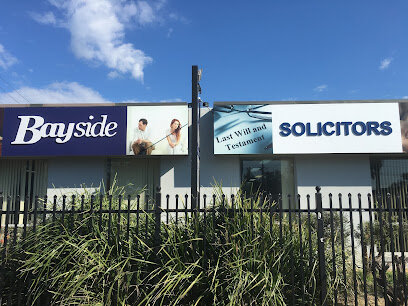Best Landlord & Tenant Lawyers in Frankston
Share your needs with us, get contacted by law firms.
Free. Takes 2 min.
Free Guide to Hiring a Real Estate Lawyer
List of the best lawyers in Frankston, Australia
About Landlord & Tenant Law in Frankston, Australia
Landlord & Tenant law in Frankston, Australia governs the rights and responsibilities of both landlords and tenants in rental properties. These laws cover aspects such as rental agreements, eviction procedures, property maintenance, and dispute resolution.
Why You May Need a Lawyer
You may need a lawyer for various reasons related to Landlord & Tenant issues, such as drafting or reviewing rental agreements, handling eviction proceedings, resolving disputes between landlords and tenants, and seeking legal advice on your rights and obligations as either party.
Local Laws Overview
In Frankston, Australia, key aspects of Landlord & Tenant laws include regulations on rental agreements, security deposits, rent increases, property inspections, repairs and maintenance, eviction procedures, and dispute resolution mechanisms.
Frequently Asked Questions
1. Can a landlord enter my rental property without notice?
In Frankston, landlords must provide reasonable notice before entering a rental property, except in emergencies.
2. How much can my landlord increase the rent?
Rent increases in Frankston are subject to regulations, and landlords must adhere to the rules specified in the rental agreement or under local laws.
3. What can I do if my landlord refuses to make repairs?
If your landlord fails to make necessary repairs, you may have legal options such as withholding rent or pursuing legal action for property maintenance.
4. Can a landlord evict me without proper cause?
In Frankston, landlords can only evict tenants for valid reasons stated in the law, such as non-payment of rent or violation of the rental agreement terms.
5. How can I terminate my lease early?
To terminate a lease early in Frankston, you typically need to provide notice to your landlord as per the terms of the rental agreement or local laws.
6. Can a landlord keep my security deposit for any reason?
Landlords in Frankston can only withhold a security deposit for specific reasons outlined in the rental agreement or under the law, such as property damage or unpaid rent.
7. What are my rights as a tenant regarding privacy?
Tenants in Frankston have a right to privacy, and landlords must respect this by providing notice before entering the rental property for non-emergency purposes.
8. Can a landlord discriminate against me based on my race or gender?
No, landlords in Frankston are prohibited from discriminating against tenants based on protected characteristics such as race, gender, religion, or disability.
9. How can I resolve a dispute with my landlord without going to court?
Mediation or arbitration can be effective ways to resolve disputes with a landlord outside of court in Frankston, Australia.
10. What are the consequences of breaking the terms of my lease agreement?
If you violate the terms of your lease agreement in Frankston, you may face consequences such as eviction, financial penalties, or legal action by the landlord.
Additional Resources
For more information on Landlord & Tenant laws in Frankston, Australia, you can contact the Tenants Union of Victoria or seek guidance from the Victorian Civil and Administrative Tribunal (VCAT).
Next Steps
If you require legal assistance with Landlord & Tenant issues in Frankston, Australia, consider consulting with a qualified lawyer who specializes in this area of law. They can provide personalized advice and representation to help you navigate complex legal matters effectively.
Lawzana helps you find the best lawyers and law firms in Frankston through a curated and pre-screened list of qualified legal professionals. Our platform offers rankings and detailed profiles of attorneys and law firms, allowing you to compare based on practice areas, including Landlord & Tenant, experience, and client feedback.
Each profile includes a description of the firm's areas of practice, client reviews, team members and partners, year of establishment, spoken languages, office locations, contact information, social media presence, and any published articles or resources. Most firms on our platform speak English and are experienced in both local and international legal matters.
Get a quote from top-rated law firms in Frankston, Australia — quickly, securely, and without unnecessary hassle.
Disclaimer:
The information provided on this page is for general informational purposes only and does not constitute legal advice. While we strive to ensure the accuracy and relevance of the content, legal information may change over time, and interpretations of the law can vary. You should always consult with a qualified legal professional for advice specific to your situation.
We disclaim all liability for actions taken or not taken based on the content of this page. If you believe any information is incorrect or outdated, please contact us, and we will review and update it where appropriate.








